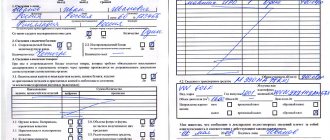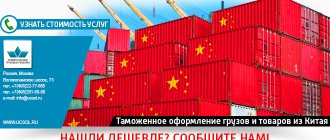A shopping tour to Milan or a grocery trip to Finland will not surprise anyone for a long time. Many Russian tourists are not only attracted by holidays abroad, but also by the opportunity to go shopping in foreign shops. But do not forget that upon returning home, Russian customs awaits all travelers. And it is quite possible that you will have to pay double the price for world-famous brands purchased at a sale. To avoid this, Let's try to understand the customs rules of Russia that are relevant in 2021. Compared to last year, there has been some deterioration in them.
NB!
We remind you that due to coronavirus infection, most countries in the world have banned or limited entry. For up-to-date information on current procedures, please visit the Rostourism website.In addition, we recommend checking the requirements of countries and reasons for allowing entry on the official websites of their diplomatic missions.
Further information presented in the article concerns the standard procedure for processing documents.
What is customs?
Customs is a specialized government agency that controls the transportation of various types of cargo across the Russian border, including luggage and postal items, and collects fees and duties for certain goods. It is prohibited to bring some items into the country, while others are allowed only within certain limits or for a fee in favor of the state.
Customs is located at checkpoints across the state border: at air and sea ports, at railway stations and automobile checkpoints. Organizations involved in international transportation, or ordinary individuals, for example, tourists traveling abroad, will one way or another have to deal with customs officers.
Seeds, planting material and potatoes
If a tourist imports (or sends by mail) planting material or potatoes to Russia, a phytosanitary certificate will be required. Currently, when importing regulated products of high phytosanitary risk, transported in postal items, hand luggage of passengers, crew members of ships, aircraft, passenger cars, vehicles, the necessary control and surveillance measures are carried out at checkpoints across the State Border of the Russian Federation.
This means that a mandatory check for the presence of a phytosanitary certificate will follow, as well as an inspection, and, if necessary, laboratory analysis and examination in order to establish the phytosanitary state of imported products.
Export from Russia
When traveling outside the Russian Federation, Russians do not fill out a declaration if they carry:
- Cash up to $10,000 (rubles and currency equivalent to this amount). There is no need to declare money on a bank card; their quantity is not limited. Export of larger amounts of cash is possible with the permission of the Central Bank;
- Traveler's checks up to $10,000;
- Personal jewelry and valuables that are exported temporarily. However, it is recommended that expensive items (gold jewelry, fur items, watches) be included in the declaration. Otherwise, when returning back, you will have to prove that their purchase was not made abroad;
- Up to 5 kg of fish or seafood and up to 250 g of sturgeon caviar.
It is worth keeping in mind that luggage can always be checked, including to clarify the amount of cash being carried. If it turns out that even a few dollars more is being exported than is allowed, the currency may be confiscated, a report drawn up and a case opened for violation of Russian customs rules. Therefore, amounts over $3,000 must be included in the declaration. This restriction is easy to get around: it is enough to carry not cash, but a bank card. No one will check the amounts of non-cash funds.
The export of alcohol from the Russian Federation is not limited, but its import into other countries is strictly regulated; this must not be forgotten. You can remove as much alcohol as you like from the Russian Federation, but it is unlikely to be able to introduce it into another state. In addition, a large volume of alcoholic products will be of interest to customs officers, who can cite an excerpt from the rules as an argument. It states that only goods for personal use and not for commercial purposes can be exported.
Thus, you can import alcohol into EU countries - 4 liters of wine, 16 liters of beer. Additionally – 1 liter of strong drinks, or drinks of medium strength (eg liqueurs) up to 22% – 2 liters per person.
Responsibility for violations of norms
Violating the established rules and nuances of taxation is strictly prohibited. If a person is caught doing this, he may be subject to administrative liability. The amount depends on the offense committed and can be:
- 2500 rubles if an individual violated the deadline for paying the duty;
- a double fine with confiscation if the traveler is convicted of deliberately failing to declare goods;
- a fine of three times the amount with confiscation if products are illegally transported from a country that is part of the customs union.
If the violation was committed by a legal entity or official, this will entail more serious liability. It may even be criminal. Possible sanctions are enshrined in Article 194 of the Criminal Code of the Russian Federation. The fine increases to 100,000-500,000 rubles. The alternative is forced labor for up to 2 years or imprisonment for a similar period of time. Sometimes a person will be required to perform compulsory work lasting 480 hours.
Duty-free import of goods into Russia
Without paying customs duties, you can carry items worth up to 500 euros (for ground transport) and 10,000 euros for air transport, while their total weight should not exceed 50 kg.
If things brought from abroad cost more than the specified standards, but less than 650,000 rubles, and their weight ranges from 50 to 200 kg, then for exceeding the limit you will have to pay 30% of the cost, but not less than 4 euros for each kilogram. It is worth keeping in mind here that customs officers may consider items of the same type, for example, several pairs of shoes, to be a consignment of goods for commercial purposes, which are subject to different customs rates. When importing more than 200 kg, fees established for foreign trade participants are charged.
So, duty-free import of personal belongings is possible subject to the following conditions:
- All items are intended for personal use (which are not related to commercial activities) of the passenger himself or his family members, this applies to used items and household appliances.
- The total weight of luggage does not exceed 50 kg;
- The total cost of items is no more than 500 euros (for ground transport) and 10,000 euros (for air transport).
There are exceptions to these import rules. This applies to certain categories of the population, which are:
- Voluntary migrants taking part in the State Program, as well as members of their families, can import personal items that were previously used, without restrictions and without duties. But this benefit is valid only once upon first entry into the country. Confirmation is a certificate of a participant in the State Program;
- Refugees and internally displaced persons. They can bring an unlimited number of personal items without taking into account their cost. Documented proof of status will be required;
- Russians who have lived abroad for a long time (more than six months) also, upon returning home, import personal belongings without restrictions on their weight and value.
Import of alcohol and tobacco to Russia
The rules for importing alcohol into Russia are strictly regulated. It is prohibited to bring more than 5 liters of alcoholic beverages from abroad. In this case, alcohol over 3 liters will have to be included in the declaration, and for each liter in excess of the norm you will have to pay 10 euros. This applies to low-strength alcohol and beer. If you transport more than 3 liters of vodka, payment is made at a rate of 22 euros for each liter.
It does not matter whether the alcohol was purchased in another country or in a Duty Free zone . The import of alcohol is permitted only to adult citizens.
It is allowed to carry up to 200 cigarettes or 50 cigars, or 250 g of tobacco per person through the customs of the Russian Federation.
Import of products to Russia
The import of products into Russia for personal use is limited to 5 kg. If customs officers discover “extra pounds,” then confiscation of goods and penalties against the violator are possible. It is allowed to transport animal products (meat, cheese, milk) only in factory packaging with factory details, otherwise customs will ask you to present a quality certificate.
A permanent ban has been established on the import of physical goods. persons:
- Products without factory packaging, for example, purchased at the market;
- Potatoes;
- Seeds (including bulbs, for example tulips from Holland);
Products from a number of countries where outbreaks of dangerous diseases have occurred are periodically banned, but such restrictions are temporary. More information about these products can be found on the Rosselkhoznadzor website (fsvps.ru/fsvps/importExport), specifically for each country from which entry into the Russian Federation is carried out.
"Sanctioned" products
The food embargo, introduced as a response to sanctions from a number of countries, does not apply to individuals if the goods were purchased for personal use.
Simply put, a Russian tourist can legally bring any of the products prohibited for import by sanctions , provided that their quantity does not exceed 5 kg and they are in the original packaging. That is, when traveling around Italy, cheese lovers can bring a couple of Parmesan triangles without breaking the law. But here, again, we should not forget that customs officers may consider several kilograms of similar products to be goods of a commercial nature, and not products for personal use.
How best to transport caviar
These products can be transported if they are stored at low temperatures. Therefore, you need to take care of having a cooler bag. It is small in size. It can be treated as hand luggage and taken with you into the cabin. When transporting a large amount of caviar products, it is better to check it in your luggage.
You can transport caviar products in factory and non-factory packaging. In the first option, the container is hermetically sealed. It contains markings and information about the manufacturer. When transporting products in non-original packaging, you must purchase a sealed plastic container or a special bag in advance.
Note. During the flight, the pressure in the aircraft constantly changes. Unsealed packages sometimes become deformed. Protecting your products with additional sealed containers will keep your items safe.
Procedure for declaring goods
There are two ways to cross the customs zone: along the “red” or “green” corridors.
As in all international practice, travelers who do not have items to declare in their luggage follow the “green” rule. From the point of view of the law, crossing the border of this corridor is equivalent to a citizen’s verbal confirmation that he is not carrying goods that should be included in the declaration. But a customs officer can always check what a person is carrying. If he discovers things that must be included in the declaration, this will be a violation of the law. The degree of punishment depends on the goods transported and their quantity. In some situations, a fine is possible, and in others, criminal liability.
The “red” corridor is provided for persons importing goods into Russia, the inclusion of which in the declaration is mandatory. This means that their luggage contains things or items that are subject to duty or there are restrictions on their value. By the way, at some international airports in Europe there is also a “blue” corridor, but only citizens of the European Union pass through it.
Russian legislation provides for severe fines and confiscation for smuggling. In some cases, the amount of penalties can reach double the cost of the goods.
Customs declaration
At customs, a passenger customs declaration is filled out and must be given to the inspection staff. A sample form can be found at this link.
The Federal Customs Service (FCS) clarifies that all information specified in the declaration must be accompanied by documentary evidence. At the request of a customs officer, you must present the transported items for customs control.
The declaration must be completed from the age of 16; for younger children, information is provided by parents or persons responsible for them. The paper is drawn up in two copies; information should be entered legibly without errors. One copy is taken by the customs officer, the other remains with the traveler. Along with the declaration, the following is submitted:
- International passport;
- Receipts and sales receipts for purchased goods confirming their value;
- Travel tickets;
- Confirmation of customs benefits, if any.
It is worth considering that if there are no receipts, customs officers can calculate the cost of the goods based on the catalogs they have with similar goods.
What needs to be declared?
The declaration must include information if the following are carried:
- Cash over $3,000;
- Securities;
- Traveler's checks up to $10,000;
- Precious metals and stones;
- Medicines containing potent and toxic substances, as well as medications of a psychotropic and narcotic nature. To transport such medications, you should prepare a prescription from a doctor and an extract from your medical history in advance;
- Nuclear materials and their components;
- Cultural values. Cultural objects are not subject to state duties, but their declaration is required. Moreover, after importing into Russia, such items must be registered with the regional Ministry of Culture;
- State awards of Russia;
- Vehicles (cars, mopeds, motorcycles);
- Weapons and ammunition. When transporting, permission from the competent authorities is required;
- Fuel over 10 liters in a separate container (in vehicle tanks is not taken into account);
- Products of scientific activity and materials related to state secrets.
A more complete list can be found on the FCS website (customs.ru). Goods from the list above must have documentary evidence. Certificates and permits are required to prove that the items are being transported legally.
Goods for personal use are carried without a declaration: toiletries, clothing, jewelry, photo and film equipment, as well as accessories for them.
Import of animals
The import of animals into the Russian Federation is regulated by customs rules. When transporting them across the Russian border, you will need an international animal passport issued by the veterinary authority of the country from which entry is made. Such a passport can replace an international veterinary certificate. The documentation includes information about vaccinations against rabies and a note about the clinical health status of the pet. Vaccination is carried out no earlier than 30 days before departure, but no later than 12 months ago. In the future, these international papers are exchanged for Russian veterinary certificates.
The weight of the animal is taken into account in the total weight of the luggage carried. Overweight is paid separately.
Contacts
Department of Quarantine Phytosanitary Control at the State Border of the Russian Federation Telephone Fax E-mail:
Department of Border Veterinary Control at the State Border of the Russian Federation and Transport Telephone Fax E-mail:
Headquarters of the Finnish Food Safety Agency Evira Address: Elintarviketurvallisuusvirasto Evira, Mustialankatu 3, 00790 Helsinki Fax: +358 29 530 4350 E-mail: , Website: www.evira.fi
You can find out about possible changes to customs rules on the website of the Federal Customs Service of the Russian Federation .
Share link:
- Tweet
- Telegram
- by email
Prohibited for import into Russia
Products prohibited for import into Russia:
- Printed, photo or video products of a pornographic nature, as well as materials in any form containing elements of state secrets, propaganda of racism, Nazism, terrorism, national or religious hatred;
- Representatives of flora and fauna that are on the verge of extinction;
- Narcotic substances;
- Vegetables and fruits without a phytosanitary certificate;
- Weapons, their components and ammunition without special permission (this includes some types of pneumatic, cold and gas weapons);
- Human organs, biological tissue, blood and its components.
Mushrooms
The collected mushrooms will have to be cleaned or cleared of soil: when importing forest mushrooms into the territory of the Russian Federation, it is necessary to exclude the presence of soil, which during international trade is the most dangerous material in phytosanitary terms and is prohibited for import into the territory of the Russian Federation and most countries of the world without a phytosanitary certificate confirming the absence of quarantine objects. Thus, in the soil you can find cysts and adult nematodes that are difficult to distinguish with the naked eye, seeds of weeds and plant pathogens that persist on plant debris, and other especially dangerous quarantine organisms for the territory of the Russian Federation.
Customs limit on parcels from 2021
In conclusion, let us remind you, or rather, inform you about the new rules for duty-free import of goods from abroad through mail and/or courier services.
For the first half of 2021, the limit is set at 200 euros and 31 kg (for the second half it is expected to be reduced to 100 euros) . However, compared to previous limits, an interesting point has appeared. If previously the limit of 500 euros could be used once a month, now a separate package cannot cost more than 200 euros. The number of parcels per month is not limited. The rate at which duty is charged for exceeding the limit has also improved. Not 30% as before, but 15% above it (but not less than 2 euros per kg instead of 4 euros). Whether it’s good or bad, decide for yourself. And we will monitor further developments.
( 8 ratings, average: 2.88 out of 5)
We also recommend:
Discussion:
Rules for legal entities persons
The rules regulate the Customs Code and are designed in accordance with the Customs Union. Let's look at the main points:
- The individual entrepreneur and the organization must be included in the international economic register.
- The inspection is not for everyone, but by choice.
- Customs inspection can occur at each inspection point, regardless of the stage of cargo transportation.
- In case of any losses on the part of the inspection authorities, they will also be held responsible.
- Documents are sent electronically, with some exceptions.










